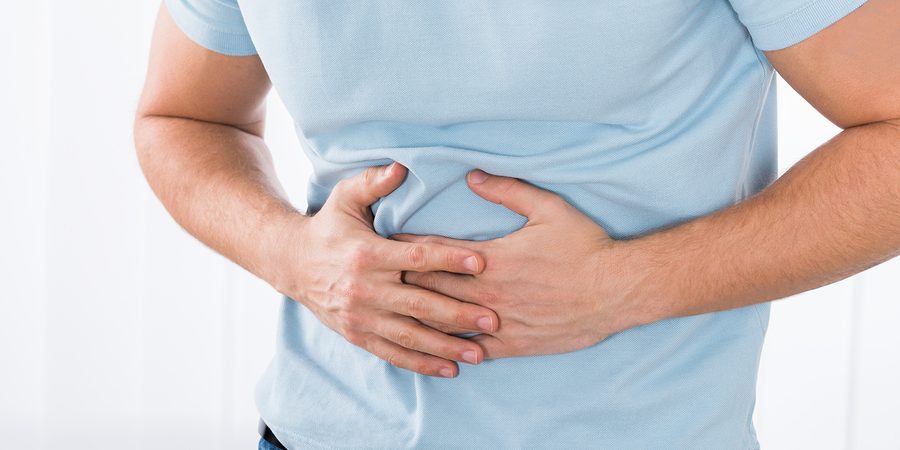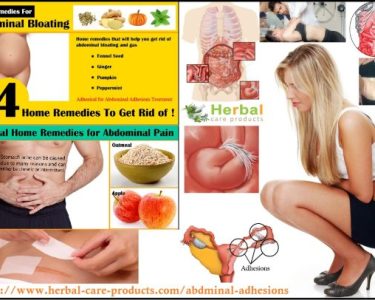Abdominal adhesions are bands of scar tissue that develop in the abdominal cavity, often as a result of surgery, infection, or inflammation. These adhesions can lead to pain and discomfort, sometimes interfering with normal organ function. Finding effective pain relief for abdominal adhesions is essential to improving quality of life. The best options for managing the discomfort associated with this condition.
What are Abdominal Adhesions?
Abdominal Adhesions are bands of fibrous scar tissue that form within the abdominal cavity, often connecting organs and tissues that are typically separate. These adhesions can develop as a natural part of the body’s healing process, especially after surgery, infection, or inflammation in the abdominal area.
Causes of Abdominal Adhesions
- Surgery: Most commonly, adhesions occur after abdominal or pelvic surgeries, such as appendectomy, cesarean section, or bowel surgery.
- Infections or Inflammation: Conditions like appendicitis, peritonitis, or endometriosis can trigger adhesion formation.
- Trauma: Injury to the abdominal region may lead to adhesions.
- Radiation Therapy: In cancer treatments, radiation can cause adhesions as a side effect.
Symptoms of Abdominal Adhesions
- Many adhesions cause no symptoms and go unnoticed.
- Chronic abdominal pain: This may occur if adhesions pull on internal tissues.
- Bowel obstruction: Severe cases can lead to a blockage in the intestines, causing nausea, vomiting, and bloating.
- Infertility in women: Adhesions around the reproductive organs can interfere with fertility.
Best Pain Relief Options for Abdominal Adhesions
Pain caused by abdominal adhesions can range from mild discomfort to severe, chronic pain. While adhesions themselves cannot always be eliminated without surgery, there are effective ways to manage the associated pain and improve quality of life. Below are some of the best pain relief options
1. Over-the-Counter Pain Relievers
For mild to moderate pain, over-the-counter (OTC) medications can provide temporary relief. Common choices include:
- Ibuprofen (Advil, Motrin): Reduces inflammation and relieves pain.
- Acetaminophen (Tylenol): A gentler option for those with sensitive stomachs.
💡 Tip: Always follow dosage instructions to avoid side effects.
2. Prescription Medications
If OTC options are insufficient, doctors may prescribe stronger medications:
- Nonsteroidal Anti-Inflammatory Drugs (NSAIDs): Prescription-strength NSAIDs can help reduce inflammation more effectively.
- Opioids: For severe pain, opioids like tramadol may be prescribed temporarily. Use these cautiously due to the risk of dependency.
3. Physical Therapy
Physical therapy can help manage pain by improving mobility and reducing tension caused by adhesions. Techniques may include:
- Gentle stretching exercises: Helps reduce stiffness in the abdominal area.
- Massage therapy: May improve blood flow and ease pain.
- Myofascial release: A hands-on therapy targeting adhesions and scar tissue.
4. Heat Therapy
Applying heat to the abdomen can relax muscles and reduce pain caused by adhesions. Options include:
- Heating pads
- Warm compresses
- Hot water bottles
Use heat therapy for 15–20 minutes at a time for the best results.
5. Anti-Adhesion Supplements
While there is no supplement that can completely prevent or eliminate abdominal adhesions, certain natural and dietary supplements may support overall healing and reduce inflammation, which can help minimize adhesion formation. These Supplements for Abdominal adhesions can be used alongside other treatments under medical supervision.
1. Omega-3 Fatty Acids
- Source: Fish oil, flaxseed oil, and walnuts.
- Benefits: Omega-3 fatty acids have anti-inflammatory properties that may reduce tissue inflammation and help in the healing process post-surgery or injury, potentially limiting adhesion formation.
- Dosage: Typically, 1,000–2,000 mg per day, as recommended by a healthcare provider.
2. Bromelain
- Source: An enzyme found in pineapple.
- Benefits: Bromelain is known for its anti-inflammatory and fibrinolytic properties, which may help reduce scar tissue and adhesion development.
- Dosage: 500–1,000 mg per day, taken on an empty stomach for best results.
3. Curcumin
- Source: Found in turmeric.
- Benefits: Curcumin is a powerful antioxidant and anti-inflammatory compound that may help reduce fibrous tissue formation and improve tissue repair.
- Dosage: 500–1,000 mg of curcumin extract per day, with black pepper (piperine) to enhance absorption.
4. N-Acetylcysteine (NAC)
- Source: A precursor to glutathione, a potent antioxidant.
- Benefits: NAC may reduce oxidative stress and inflammation, which can play a role in adhesion development.
- Dosage: 600–1,200 mg daily, based on healthcare provider advice.
5. Vitamin E
- Benefits: Vitamin E is an antioxidant that may help reduce scar tissue formation and promote skin and tissue healing.
- Dosage: 400–800 IU per day, but consult a doctor for appropriate dosing.
6. Zinc
- Benefits: Zinc is essential for tissue repair and immune function, which can support healing and potentially limit adhesion formation.
- Dosage: 15–30 mg per day, depending on dietary intake and individual needs.
7. Serrapeptase
- Source: An enzyme derived from silkworms.
- Benefits: Serrapeptase has anti-inflammatory and proteolytic properties that may help break down fibrous tissue and reduce adhesions.
- Dosage: 10–60 mg per day, taken on an empty stomach.
8. Quercetin
- Source: Found in apples, onions, and berries.
- Benefits: Quercetin is a natural flavonoid with anti-inflammatory and antioxidant effects that may reduce the risk of scar tissue formation.
- Dosage: 500–1,000 mg per day, depending on individual needs.
6. Minimally Invasive Procedures
If pain persists and significantly impacts your quality of life, medical interventions may be necessary:
- Adhesiolysis: A surgical procedure to remove or separate adhesions. This is typically done laparoscopically to minimize risks.
- Steroid Injections: These can help reduce localized inflammation and pain.
Preventing Further Adhesion-Related Pain
While existing adhesions cannot be fully prevented without surgical intervention, steps can be taken to minimize complications:
- Maintain a healthy diet high in fiber to prevent bowel obstructions.
- Stay hydrated to support smooth digestive processes.
- Regular exercise can improve overall abdominal health.
When to Seek Medical Attention
Consult a healthcare provider if you experience:
- Severe or worsening pain
- Symptoms of bowel obstruction, such as vomiting or inability to pass stool
- Signs of infection, including fever and redness around a surgical site
Conclusion
The best pain relief for abdominal adhesions involves a combination of treatments tailored to the individual’s symptoms. Start with OTC pain relievers and lifestyle modifications, and consult a doctor if symptoms persist. In severe cases, medical procedures like adhesiolysis may provide lasting relief. Managing pain effectively can significantly improve your quality of life, allowing you to enjoy daily activities with less discomfort.




